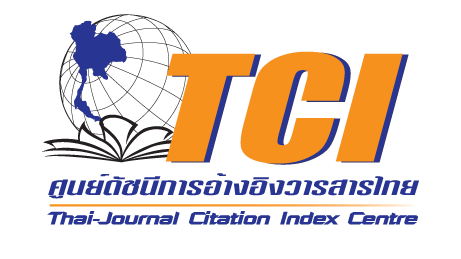A SURVEY AND COMPARISON OF PIANO TEACHING NEEDS IN BANGKOK METROPOLITAN REGION PRIVATE MUSIC SCHOOLS: EMPLOYERS AND EMPLOYEES PERSPECTIVE
Keywords:
Piano Lessons in Bangkok, Music Lessons, Music Education, Piano Teaching, Music TeachingAbstract
Background and Objectives: The study of piano has become increasingly popular due to various interests, including the development of concentration, the cultivation of perseverance to accomplish tasks, the ability to work under pressure, the training of social skills and collaboration with others, the enhancement of listening skills, playing piano for enjoyment, using music as a tool for treating attention deficit disorder, learning as a special skill for academic applications, and fostering future career skills. As a result, numerous piano music institutions have been established across different regions, ranging from private lessons in residential areas to large institutions with many teachers on staff. Furthermore, the goals for learning vary, such as learning to play favorite songs, preparing for competitions, and pursuing graded examinations. At the same time, many senior high school students continue to pursue a major in piano in higher education, indicating a growing demand for piano education in relation to the number of piano graduates each year. However, there remains a significant issue with the shortage of piano instructors at many institutions, alongside concerns regarding the effectiveness of teaching methods, which may not fully meet the students' learning goals or the institution's policies. This discrepancy can lead to students not receiving the full benefits of their education, which may influence their decision to either continue or discontinue their studies. These challenges also impact the institutions' revenue and the stability of piano teaching careers. The disconnection between the needs of institutions and teachers, lack of understanding of essential knowledge required for piano instruction, and insufficient appeal of institutions in attracting qualified teachers could be contributing factors to these issues. Therefore, this study aims to analyze the relationship between the demands of music institutions for piano teachers and the career expectations of piano majors who are about to graduate and seek future teaching positions. The study also aims to reflect on factors that can be adjusted and improved from both perspectives. The research will assist in expanding the curriculum for piano instruction at universities and serve as a self-assessment tool for piano students to evaluate their preparedness for entering the workforce. It will also provide insights into the operational aspects of piano institutions that require further development.
Methods: Data was gathered through surveys and interviews with institution administrators and students to gather information relevant to the research. The sample included institutions randomly selected through Google search and students from various universities with piano programs. The data was analyzed and presented in tables, graphs, and discussions.
Results: The findings of the research indicate that piano institutions in different areas have similar educational qualifications requirements, although some institutions set a minimum education level, while others emphasize experience and potential for self-development over formal education. Most institutions prioritize personal qualities, attitudes, and teaching psychology over technical piano skills. Institutions in urban areas tend to require higher educational qualifications and are more likely to use grand pianos in their classrooms compared to those in suburban areas, where there is a shortage of teachers. Many students are interested in working in suburban areas due to the convenience of travel and lower living costs, as well as comparable compensation between urban and suburban institutions when adjusted for personal expenses. Furthermore, many students are less comfortable teaching theoretical topics and history, which highlights a gap that could lead to missed job opportunities and suggests a path for personal development. This suggests the need for university programs to adjust their curricula to produce graduates with the qualifications required for real-world employment, by incorporating more focus on psychology, workplace internships, personality development, professional communication, basic management, English proficiency for teaching, and other skills to better equip graduates for the modern workplace, which is not solely focused on performance. Additionally, there are management factors that students expect from institutions, such as professionalism in communication, acting as intermediaries in transactions, and assisting with issues like class registrations and communication with parents when teachers are unable to make up for missed lessons. Career progression factors, such as formal accreditation of institutions to help teachers advance to higher positions and the stability of income with experience, are also key concerns for students. The study also reveals that some qualities, such as being an active performing musician, are seen as advantages but may not be of high interest to institutions. Many institutions feel that such teachers may take more leave for performances and may not focus on teaching as much as on their personal rehearsal schedules. Similarly, while highly experienced teachers might be seen as assets, some institutions express concerns that such teachers might be harder to align with institutional policies and may be more likely to leave for better opportunities, which could cause students to follow them out of the institution. Institutions should use the findings from this study to explore ways to work more effectively with highly experienced teachers.
Conclusions: This research reflects the need for piano institutions, students, and universities to recognize the factors affecting career development, as these elements play a crucial role in enhancing the effectiveness of piano education outside of universities. Additionally, the findings provide useful information for parents seeking to find appropriate piano institutions for their children, showing that qualified piano teachers are not confined to central urban areas but are spread across various locations. This study also provides initial knowledge for administrators of new or improving institutions, offering insights on how to develop efficient operational methods based on a diverse range of needs and perspectives.
References
Associated Board of the Royal Schools of Music. "Piano Practical Grades Qualification Specification 2023 & 2024." Accessed May 1, 2024. https://www.abrsm.org/sites/default/files/2024-06/Piano%202023%20%26%202024%20Prac%20syllabus%2020230807.pdf.
Aung-Insombut, Nawapan, and Prasert Intarak. "Music School Management a Case Study of Superstar Academy." Journal of Educational Administration, Silpakorn University 9, no. 1 (July-September 2018): 87-100. (in Thai)
Bangkok Information Center. "Bangkok Info." Accessed July 1, 2024. https://apps.bangkok.go.th/info/m.info/nowbma/. (in Thai)
Boonyanant, Klen. "Curriculum Development Guidelines of Bachelor of Education in Music Education Program for Rajabhat Universities." Master's thesis, Chulalongkorn University, 2019. (in Thai)
Jutras, Peter J. "The Benefits of Adult Piano Study as Self-Reported by Selected Adult Piano Students." Journal of Research in Music Education 54, no. 2 (Summer 2006): 97-110.
Ministry of Education. "Private School Act B.E. 2550." Accessed April 4, 2024. https://www.moe.go.th/พระราชบัญญัติโรงเรียนเ/. (in Thai)
National Statistical Office Thailand. "Population Report 2010." Accessed June 15, 2024. https://www.nso.go.th/nsoweb/storage/title_presentation/2023/20230515143642_41331.pdf. (in Thai)
Office of The Committee for Research Ethics (Social Sciences). "Standard Operating Procedures for the Committee for Research Ethics (Social Sciences), 2024 (Version 3)." Accessed May 20, 2024. http://www.mussirb.com/upload/2024/SOP_MUSSIRB_3_2567_1718079981.pdf. (in Thai)
Royal Thai Survey Department. Bangkok. Bangkok: Royal Thai Survey Department, 2005. (in Thai)
Trinity College London. "Piano Syllabus; Piano Accompanying, Face-to-face Assessment, Qualification Specifications for Graded Exams from September 2023." Accessed June 1, 2024. https://www.trinitycollege.com/resource/?id=9079.
Yamane, Taro. Statistics: An Introductory Analysis. 2nd ed. New York: Harper & Row, 1964.

Downloads
Published
How to Cite
Issue
Section
License
Copyright (c) 2025 College of Music

This work is licensed under a Creative Commons Attribution-NonCommercial-NoDerivatives 4.0 International License.
The copyright of the article belongs to the author. Published articles represent the views of the authors. The editorial team neither necessarily agree with nor take any responsibility for the article.





